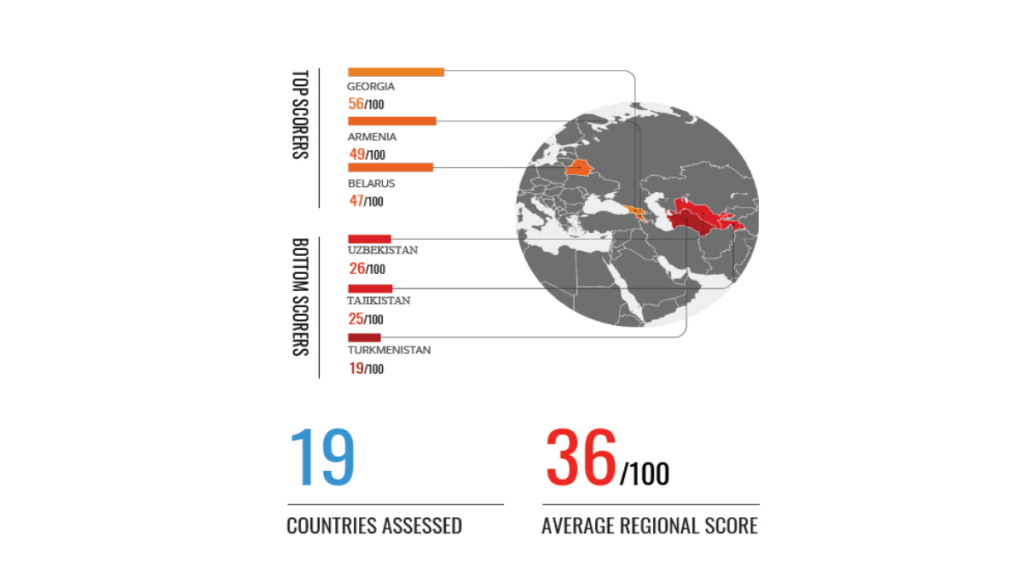Georgia’s score in the annual Corruption Perception Index (CPI) remains unchanged from 2019, “as anti-corruption efforts have stagnated in nearly a decade,” Transparency International (TI) says.
In the 2020 CPI, released by the anti-corruption watchdog on January 28, 2021, Georgia is ranked 45th among 180 countries with a score of 56 (on a scale where 0 is the worst and 100 is the best result), the highest figure in the Eastern Europe and Central Asia region. Georgia shares 45th place with Poland and Saint Lucia.
In 2019, Georgia was ranked 44th among 180 countries with a score of 56. In 2018 Georgia’s score stood at 58, and it ranked 41st, while in 2017 Georgia was placed 46th with a score of 56. Georgia’s CPI score was 57 in 2016, 52 in 2015 and 2014, 49 in 2013, and 52 in 2012.
TI says 2020 results suggest that the highlight of previous CPI, “state capture and undue influence over key institutions,” was left unaddressed by the Georgian authorities.
Citing TI Georgia’s 2020 National Integrity System Assessment, the international watchdog argues a single political group wields “disproportionate control” over public institutions, aspiring often to influence media and the private sector as well.
“Undue partisan influence over the law enforcement agencies has rendered them effectively incapable of investigating cases of possible high-level corruption,” TI says.
“Further, state capture has meant that the legislature and the judiciary do not properly exercise their oversight roles vis-a-vis the executive branch,” it adds.
Regarding the country’s political crisis, TI argues the ruling Georgian Dream’s “privileged access” to public resources and “apparent willingness to trade government contracts for donations” undermine political competition, rendering the emergence of pluralistic governance unlikely.
This has led to repeated street protests and political polarization, culminating in the opposition boycott of the new Parliament over election fraud allegations, TI stresses.
The international watchdog recommends Georgia “regain” its anti-corruption momentum by establishing an independent anti-corruption agency and encouraging a competitive political environment.
Also Read:
This post is also available in: ქართული (Georgian) Русский (Russian)

